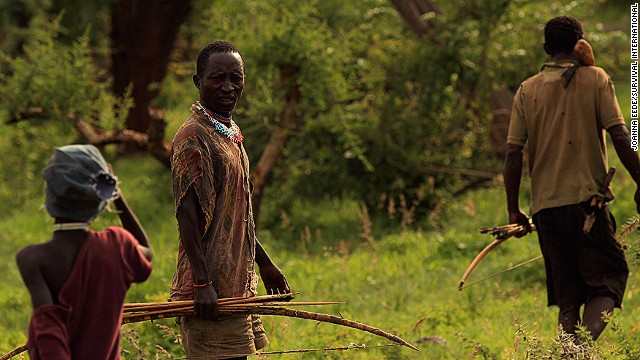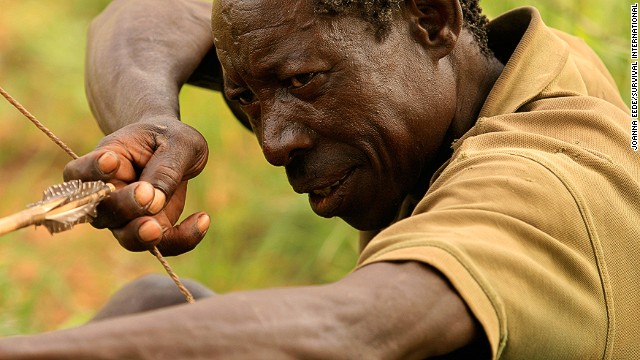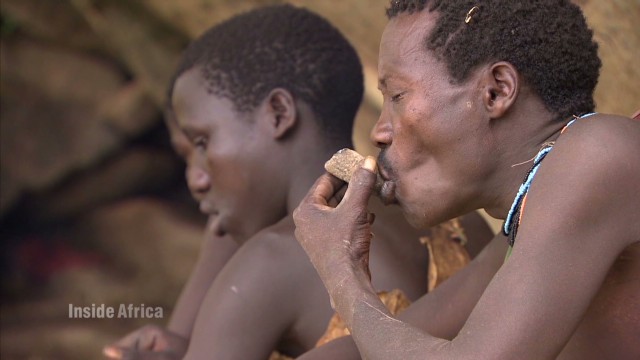



Northern Tanzania (CNN) -- One could classify the Hadza people as a throwback. Numbering a mere 1,300, they represent one of the last communities of hunter-gatherers in the world. Their language -- which includes click consonants -- is unrelated to any other on Earth, and is possibly one of the oldest spoken languages in existence.
Their DNA, too, suggests an ancient heritage, easily 100,000 years old (and possibly a primary root for mankind's family tree). Their home, near Northern Tanzania's Olduvai Gorge, has been dubbed the "Cradle of Mankind," partly because it has unearthed some of the oldest known human remains.
An ancient way of life.
Many of the Hadza live in a remote stretch of Tanzania, where much of their day is given over to foraging and hunting. The techniques they use for finding sustenance are passed down generation to generation. The men favor handmade bows and arrows, while the women dig up roots and gather berries.
The Hadza don't store food, plant trees or build houses. Rather, they make temporary huts from dried grass and intertwined branches, and move in accordance with the local animals.
"We are rich in tradition," explains Shani Msafin-Sigwaze, the first Hadza to attend university, and an informal spokesperson for his community.
"Culture is very important, because when people forget their culture, they forget where they are from," he adds.
Mounting challenges
Unfortunately, the Hadza way of life is under threat. In the last 50 years, they have lost 90% of their land to farmers and cattle herders, according to Survival International, an NGO in defense of tribal people around the world.
Read: The African tribes that wear ... cardigans
Positive signs?
Though the threat the Hadza face is real -- and extinction is far from a remote possibility -- there have been some successful efforts to restore some of what they've lost. In 2011, for instance, the Tanzanian government issued land titles to a community of Hadza living in Yaeda Chini.
Now Msafin-Sigwaze, who belongs to a separate tribe of Hadza, is hoping he can achieve the same for his community.
"I belong to the Hadza. I study in the name of the Hadza. The name of the Hadza has made me go to university," he says. "Now, I'm going to fight until I see the Hadza get their land."
No comments:
Post a Comment